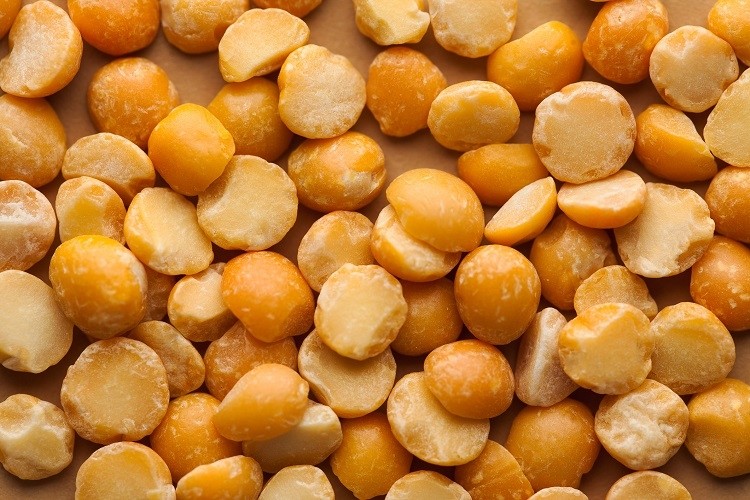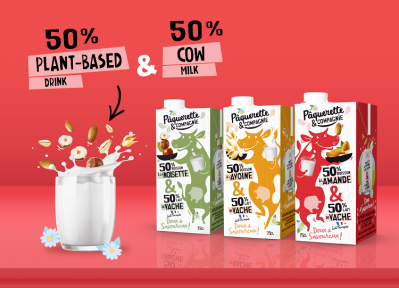‘Hybrids are coming’: Making the case for cell-cultured and plant-based blends

From soy-based sausages to pea protein burgers, the plant-based category is booming. According to EU data, Europeans’ consumption of plant-based food increased by 49% between 2018 and 2020.
At the same time, meat sales – particularly of chicken and poultry – are on the rise. This begs the question: are meat eaters truly satisfied by plant-based options on the market?
Industry experts at the recent Alt Protein Conference by Protein Directory and Cell Agri were unconvinced, making the case for plant-based and cell-cultured hybrid products to satisfy meat eaters’ cravings in the not-so-distant future.
“Hybrid products are coming,” Olivia de Talancé, COO at French cultivated meat start-up Vital Meat, told the event. Vital Meat is developing a cell-based chicken product, with plans to expand into duck, white fish, and pork in the future.
“They are going to be scalable; they are going to be in our supermarkets; and we are going to get regulatory approval for that.”
Achieving the ‘entire sensory experience’
Perhaps the strongest argument for developing cell-cultured and plant-based blends lies in the ‘king’ of all senses: taste.
For David Brandes, co-founder of Belgian cultured fat start-up Peace of Meat (acquired by Israel-based Meat-Tech 3D in 2020), combining plant proteins with cell-based ingredients makes for a ‘perfect match’.
Suggesting that cultured fat is the missing ingredient in current plant-based formulations, Brandes said cell-based fat ‘really drives the full animal-like taste’ and ‘satisfies cravings for meatiness’. “That is very hard to be found in plant-based oils and fats,” he said.
It is not all about taste, however. The ‘entire sensory experience’, including appearance, texture, and aroma, is key to consumer adoption, according to David Welch, CSO and co-founder at food focused VC and private equity firm Synthesis Capital.
“I think once cultivated meat companies can demonstrate a significant improvement in those sensory attributes, compared to existing plant-based formulations, they are going to have a really compelling value proposition.”
Included in the hybrid’s sensory experience is its ‘sizzling’ cooking experiences that consumers are ‘so much looking for when frying a steak in the pan’, added Peace of Meat’s Brandes.
Nutrition and clean label
In making the case for cell-cultured and plant-based hybrids, the experts stressed lab-grown ingredients can also play a positive role – although ‘somewhat secondary’ to taste – in nutrition.
The idea here is that by incorporating cultivated ingredients into plant-based products, the end product is more likely to match the nutritional profile of its conventional counterpart.
Additional functionality provided by cell-based ingredients also paves the way for cleaner labels, the experts suggested. According to Brandes, cell cultured fat drives texturization and binding properties when mixed with the ‘right’ plant-based matrices.
Synthesis Capital’s Welsch agreed it is likely cultivated ingredients can provide more than one central property to foods. “They might [replace] the need for extra additives, like a binder, in a plant-based meat. While edging closer to biomimicry, you’re also improving the clean label attributes of some of these products.”
Spotlight on sustainability
The benefit of cell-based and plant-based hybrids on sustainability cannot be overlooked. As Brandes pointed out, plant-based fats are regularly derived from monocultures, which are bad news for global biodiversity.
Of course, cultivated ingredients are also slaughter-free, which plays into the sector’s ‘clean’ and ‘ethical’ perception.

Concerning environmental sustainability, Brandes made a strong case for cell-cultured and plant-based hybrids. “When combined with plant-protein [cultured fat] can really improve its ecological footprint…”
For every kilogram of pea product produced from pea farming, for example, 0.4kg of CO₂ is emitted. Cultured meat, the Peace of Meat co-founder explained, ‘scores higher on that scale’ at 7.5kg CO₂e per kg produced.
Beef is higher still, at an average of 25kg of CO₂ emitted per kilogram of product. “So while cultured fats or meats are more sustainable from a CO₂ emission perspective than the beef system, the plant protein system is even more sustainable.
“And hence, adding the fat part for the taste, and then the plant protein part for the ecological footprint, from our perspective is a perfect match.”
Beyond plant-based
While the cell-cultured and plant-based matrix may be one of the first to reach market when cultivated fat receives regulatory approval, the ingredient needn’t be pigeonholed within the plant-based meat analogue space.
It is ‘common belief’ that the future of meat will be diverse, stressed Brandes. “All sorts of meats will be consumed in the future, from plant-based to microbial fermentation based, cultured, and also hopefully only high-quality and ethically sourced livestock meat. And I believe cultured fat can be an ingredient in all of them.”
The Peace of Meat co-founder continued: “I believe that [cultured fat] is not just a transitional technology, but something that in the long-run will be a really useful ingredient.”


























